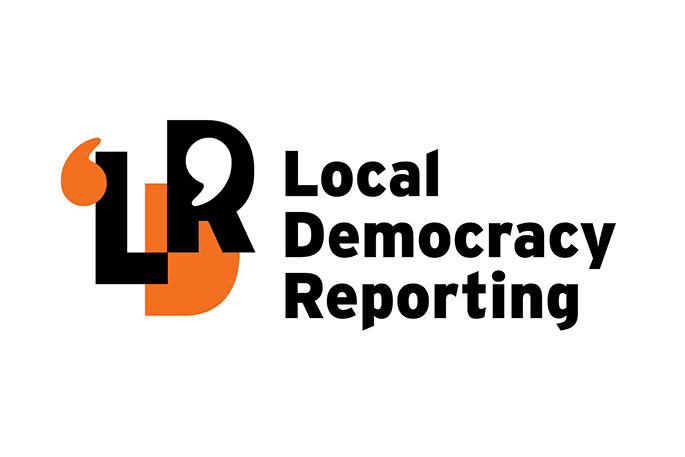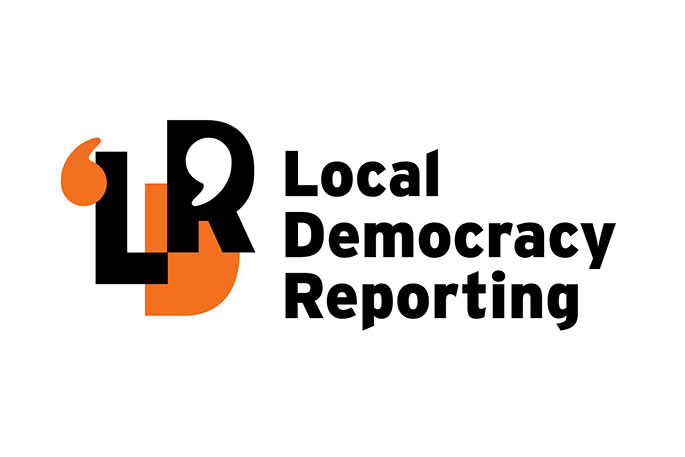Tauranga’s gambling policy has been adopted despite a warning it wouldn’t reduce gambling harm.
The major change means gambling venues will be able to relocate away from residential areas, especially where there is high deprivation.
The previous policy prevented venues from moving, unless there was a catastrophic event, like a fire or flood.
Gambling venues wanting to relocate will only be able to move to commercial or industrial zones that are more than 100 metres away from residential zones, with a deprivation index of 8 to 10.
The deprivation index measures an area’s socioeconomic status, with 10 being the least well-off.
The policy was adopted at a Tauranga City Council Strategy Finance and Risk Committee meeting on Monday. [SUBS 4/12]
Tauranga has 32 venues with pokie machines and four TABs. As of June, there were 469 pokie machines in the city.
Around 63 per cent of Tauranga’s gambling venues are in medium to high deprivation areas.
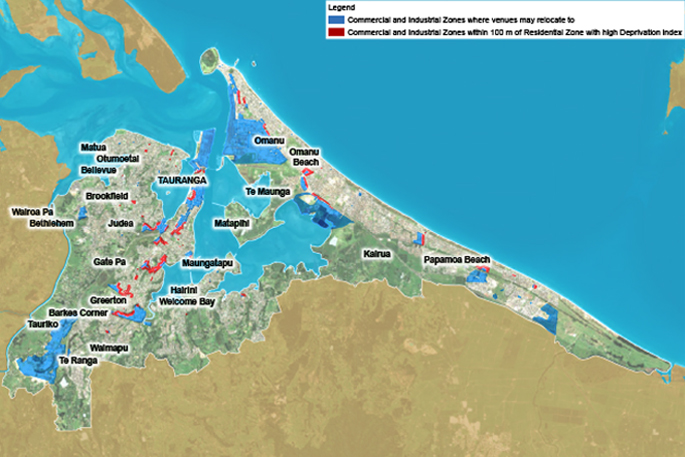 The red areas are where gambling venues cannot move too. Photo: TCC.
The red areas are where gambling venues cannot move too. Photo: TCC.
During hearings in November Toi Te Ora public Health representative Rachel Jordan said gambling was a significant public health issue that caused harm to individuals, whānau and communities.
“We are concerned that the changes proposed by the council will not reduce gambling harm in Tauranga.”
Allowing venues to relocate would undermine the sinking lid policy to reduce gambling harm, she said.
A sinking lid policy meant when a Class 4 (pokie) gambling venue closed, consent wouldn’t be given to re-open another venue.
Electronic gambling machines were mainly located in higher deprivation areas and gambling harm affected the most vulnerable community members, said Jordan.
“We [Toi Te Ora] recommend that council strictly enforces its sinking lid policy and does not allow relocation of venues and gambling machines,” Jordan said.
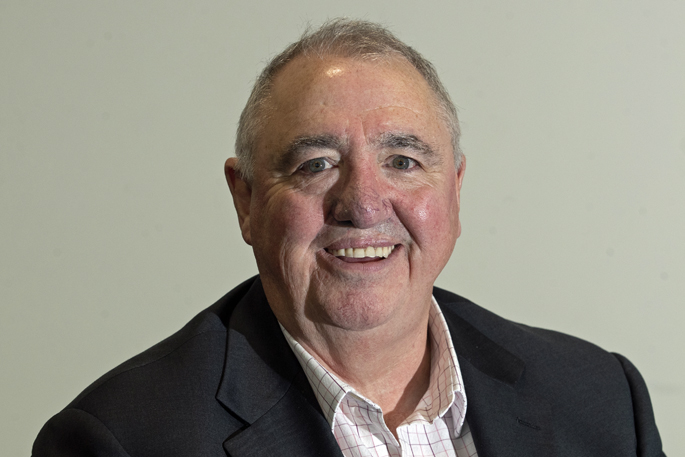 Commissioner Stephen Selwood said gambling venues could cling to current venues if the policy wasn’t changed. Photo: John Borren/SunLive.
Commissioner Stephen Selwood said gambling venues could cling to current venues if the policy wasn’t changed. Photo: John Borren/SunLive.
Commissioner Stephen Selwood said by not allowing venues to relocate to lower deprivation areas, licensed venues could cling on in high deprivation areas.
Jared True, of the Gaming Machine Association of New Zealand, said the relocation proposal was “entirely reasonable”.
The association supported the relocation provision expanding, especially when the move to the new site was more desirable from a harm minimisation perspective, said True.
“We should … enable those venues to move to new suitable areas.”
At Monday’s meeting, council regulatory and compliance general manager Sarah Omundsen said submissions “overwhelmingly supported” the change.
Of the 250 submissions, 75 per cent agreed or strongly agreed with the change to enable relocations, while 14 per cent did not support it.
Reasons people gave for supporting the proposal included the city had changed and some areas were no longer suitable, it meant gambling venues could move to more suitable areas and buildings, and allowing relocation to different areas may be a faster method to remove venues from areas they are likely to do more harm in.
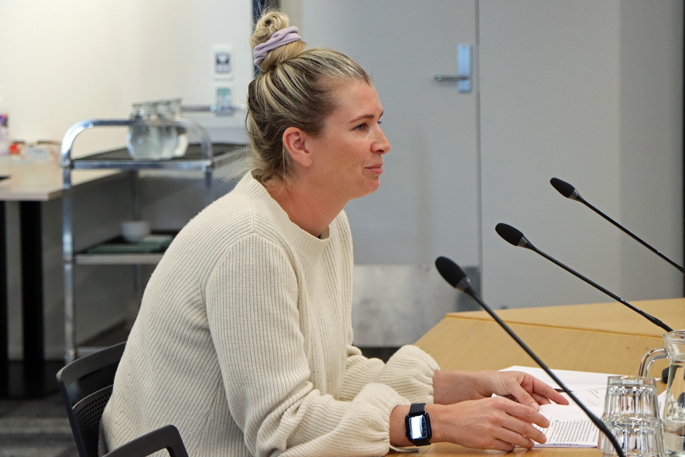 Mount Business Association representative Claudia West said the location of social and emergency housing should be factored into where gambling venues could relocate to. Photo: Alisha Evans/SunLive.
Mount Business Association representative Claudia West said the location of social and emergency housing should be factored into where gambling venues could relocate to. Photo: Alisha Evans/SunLive.
Those opposed wanted greater restrictions to reduce the number of gambling venues to zero and moving venues is unlikely to have a substantive impact on gambling harm.
Points raised during submissions and the hearings prompted the council to add in a requirement that proximity of venues to sensitive locations like schools, maraes and place of worship be considered when granting a consent to relocate a venue.
Omundsen said this was consistent with legislation.
During the hearings, Mount Business Association representative Claudia West said relocation requests should be considered on a case-by-case basis.
Social and emergency housing should be factored into where gambling venues could relocate to, she said.
Any decision should look at how many gambling venues are in an area and the distance to emergency and social housing, schools and marae, said West.
The next gambling policy review is planned for 2026.
Public Interest Journalism funded through NZ On Air.
